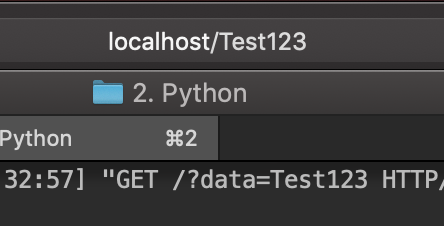Answer the question
In order to leave comments, you need to log in
Nginx + GoLang: how to fix what for someone?
There is a small site on laravel. Served by Nginx with the following config:
server {
server_name mysite.com www.mysite.com;
charset UTF-8;
index index.php;
disable_symmysites if_not_owner from=$root_path;
include /etc/nginx/vhosts-includes/*.conf;
include /etc/nginx/vhosts-resources/mysite.com/*.conf;
access_log /var/www/httpd-logs/mysite.com.access.log;
error_log /var/www/httpd-logs/mysite.com.error.log notice;
ssi on;
return 301 https://$host:443$request_uri;
set $root_path /var/www/mysite/data/www/mysite.com/public;
root $root_path;
listen 185.0.0.0:80;
location / {
try_files $uri $uri/ /index.php?$query_string;
location ~ [^/]\.ph(p\d*|tml)$ {
try_files /does_not_exists @php;
}
}
location @php {
fastcgi_index index.php;
fastcgi_param PHP_ADMIN_VALUE "sendmail_path = /usr/sbin/sendmail -t -i -f webmaster@mysite.com";
fastcgi_pass unix:/var/www/php-fpm/mysite.sock;
fastcgi_split_path_info ^((?U).+\.ph(?:p\d*|tml))(/?.+)$;
try_files $uri =404;
include fastcgi_params;
}
gzip on;
gzip_comp_level 2;
gzip_disable "msie6";
gzip_types text/plain text/css application/json application/x-javascript text/xml application/xml application/xml+rss text/javascript application/javascript;
}
server {
server_name mysite.com www.mysite.com;
ssl_certificate "/var/www/httpd-cert/mysite/mysite.com_le1.crtca";
ssl_certificate_key "/var/www/httpd-cert/mysite/mysite.com_le1.key";
ssl_ciphers EECDH:+AES256:-3DES:RSA+AES:!NULL:!RC4;
ssl_prefer_server_ciphers on;
ssl_protocols TLSv1 TLSv1.1 TLSv1.2;
add_header Strict-Transport-Security "max-age=31536000;";
ssl_dhparam /etc/ssl/certs/dhparam4096.pem;
charset UTF-8;
index index.php;
disable_symmysites if_not_owner from=$root_path;
include /etc/nginx/vhosts-includes/*.conf;
include /etc/nginx/vhosts-resources/mysite.com/*.conf;
access_log /var/www/httpd-logs/mysite.com.access.log;
error_log /var/www/httpd-logs/mysite.com.error.log notice;
ssi on;
set $root_path /var/www/mysite/data/www/mysite.com/public;
root $root_path;
listen 185.0.0.0:443 ssl;
location / {
try_files $uri $uri/ /index.php?$query_string;
location ~ [^/]\.ph(p\d*|tml)$ {
try_files /does_not_exists @php;
}
}
location @php {
fastcgi_index index.php;
fastcgi_param PHP_ADMIN_VALUE "sendmail_path = /usr/sbin/sendmail -t -i -f webmaster@mysite.com";
fastcgi_pass unix:/var/www/php-fpm/mysite.sock;
fastcgi_split_path_info ^((?U).+\.ph(?:p\d*|tml))(/?.+)$;
try_files $uri =404;
include fastcgi_params;
}
gzip on;
gzip_comp_level 2;
gzip_disable "msie6";
gzip_types text/plain text/css application/json application/x-javascript text/xml application/xml application/xml+rss text/javascript application/javascript;
}location @go-server {
proxy_set_header X-Real-IP $remote_addr;
proxy_pass http://185.0.0.0:8181;
}Answer the question
In order to leave comments, you need to log in
add before `location/{`
location ~ "^/([a-zA-Z0-9]{2,7})$" {
proxy_set_header X-Real-IP $remote_addr;
proxy_pass http://185.0.0.0:8181/?data=$1;
}location ~ "^/([a-zA-Z0-9]{2,7})$" {
try_files /does_not_exists @go-server;
}
location @go-server {
proxy_set_header X-Real-IP $remote_addr;
proxy_pass http://185.0.0.0:8181/?data=$1;
}
location ~* ^/[a-z0-9]{2,7}$ {
proxy_set_header X-Real-IP $remote_addr;
proxy_pass http://185.0.0.0:8181;
}location ~* ^/(admin|blog) {
try_files $uri $uri/ @backend;
}Didn't find what you were looking for?
Ask your questionAsk a Question
731 491 924 answers to any question